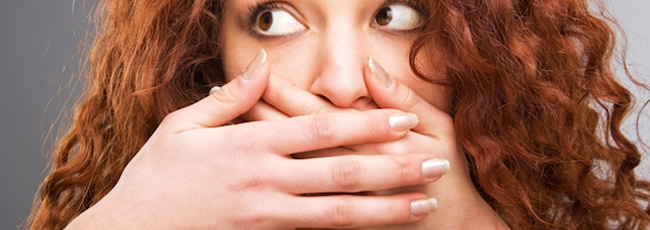Here’s What Happens When You Don’t Brush or Floss

Good dental care should be a no-brainer, but studies show half of Americans don’t floss daily, and one in five don’t brush twice a day. Unfortunately, this can cause preventable issues. Besides cavities and bad breath, here’s what you can expect if you don’t follow good dental hygiene.
You may develop gum disease.
Do your gums easily bleed when you floss? That may be a sign of gingivitis, the early stage of gum disease. More than half of all American have gingivitis. Gum disease happens with plaque attacks the gums, which pull back from the teeth and can become infected. This can lead to a more severe form of the disease, periodontitis.
You put yourself at risk for tooth infections.
People with deep cavities that have not been filled or cracked teeth are at a high risk for tooth infections. This happens when bacteria gets inside the tooth and infects the pulp or the root canal. Tooth infections can be very painful, and you may need a root canal procedure to clean the infection and fill the tooth.
You can lose tooth enamel.
If you don’t brush or rinse your teeth after eating or drinking acidic foods and beverages, it can damage the tooth enamel. When your teeth loose enamel, they become more susceptible to cavities and decay.
The good news is you can fight these common issues by brushing in the morning and before bed, flossing daily, using mouthwash, and seeing your dentist at least once a year.
Sources:
- http://www.realsimple.com/health/preventative-health/dental/preventing-treating-common-dental-problems
- http://www.nidcr.nih.gov/oralhealth/Topics/GumDiseases/PeriodontalGumDisease.htm
- http://www.webmd.com/oral-health/guide/tooth-enamel-erosion-restoration
- http://www.aafp.org/afp/2008/0415/p1139.html
- http://www.businessinsider.com/what-happens-if-you-dont-brush-and-floss-your-teeth-2014-2

